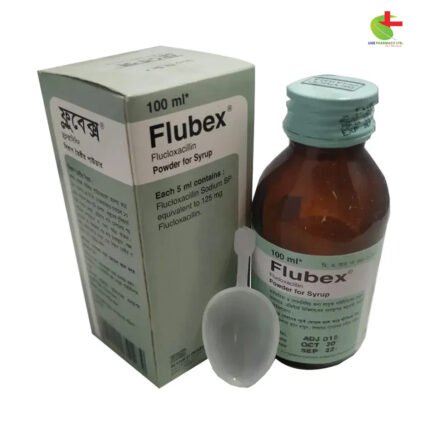Pedeamin
45.00৳ Bottle (100 ml)
- Pedeamin Syrup is formulated to manage allergic conditions such as hay fever, rhinitis, urticaria, and more.
- It combines Diphenhydramine, an antihistamine with anti-emetic and sedative properties, with Guaifenesin for cough relief and Menthol for soothing irritation.
- Ideal for adults and children over 12, it also serves as a sleep aid and offers relief from motion sickness and postoperative nausea.
 Brand
Brand
|
Beximco Pharmaceuticals Ltd |
|---|---|
 Generics
Generics
|
Diphenhydramine Hydrochloride |
 Type
Type
|
Syrup |
Indications
Pedeamin Syrup is designed to treat a range of allergic conditions and symptoms, including:
- Hay fever and allergic rhinitis
- Urticaria and angioedema
- Atopic and contact dermatitis
- Gastrointestinal allergies and pruritus
- Allergic reactions to contrast media and therapeutic preparations
- Postoperative nausea, vomiting, and motion sickness
- Certain forms of parkinsonism and allergic conjunctivitis
- It may also be used as a nighttime sleep aid and for short-term insomnia management.
Pharmacology
Diphenhydramine, the active ingredient in Pedeamin, offers multiple therapeutic effects:
- Anti-histaminic: Blocks histamine at H1 receptors, alleviating symptoms such as itching and congestion.
- Anti-emetic: Prevents nausea and vomiting by inhibiting the medullary chemoreceptor trigger zone.
- Anti-vertigo: Reduces dizziness through its central antimuscarinic effects on the vestibular system and vomiting centers.
- Sedative and Hypnotic: Provides calming effects and aids sleep.
Dosage & Administration
- Antihistamine and Antitussive:
- Tablet:
- Adults: 25-50 mg, 3 to 4 times daily.
- Children (10 years and older): 25 mg, 3 to 4 times daily or as directed by a physician.
- Syrup:
- Children under 2 years: 2.5 mL every 4 to 6 hours.
- Children 2 to under 6 years: 5 mL every 4 to 6 hours.
- Children 6 to 12 years: 10-20 mL every 4 to 6 hours.
- Adults and children 12 years and older: 10-20 mL every 4 to 6 hours.
- Tablet:
- Sleep Aid:
- Adults and children over 12 years: 50 mg at bedtime.
Use as directed by your healthcare provider.
Interactions
Diphenhydramine may interact with antidepressants (tricyclics and MAO inhibitors), intensifying anticholinergic effects. Alcohol and other CNS depressants can enhance the sedative effects.
Contraindications
Pedeamin should not be used in:
- Premature or newborn infants
- Individuals with hypersensitivity to any ingredient
- Patients with asthma, narrow-angle glaucoma, prostatic hypertrophy, peptic ulcers, pyloroduodenal obstructions, bladder neck obstruction, or those on antidepressant therapy.
Side Effects
Possible side effects include:
- Drowsiness and dizziness
- Dry mouth, nausea, and vomiting
- Less common effects: vertigo, palpitations, blurred vision, headache, restlessness, insomnia, and thickened bronchial secretions. Allergic reactions and gastrointestinal disturbances may also occur.
Pregnancy & Lactation
The safety of Diphenhydramine during pregnancy and lactation has not been established. Its use should be considered only if the benefits outweigh potential risks.
Precautions & Warnings
Avoid operating vehicles or hazardous machinery until you know how the drug affects you.
Overdose Effects
Overdose symptoms may range from CNS depression to stimulation, especially in children. Signs may include dry mouth, dilated pupils, flushing, and gastrointestinal symptoms.
Therapeutic Class
Sedating Antihistamine
Storage Conditions
Store at or below 30°C, away from light and moisture. Keep out of reach of children.













Reviews
There are no reviews yet.